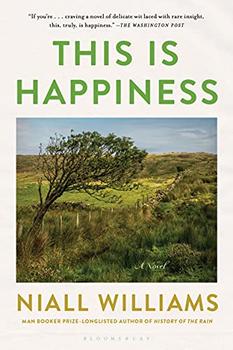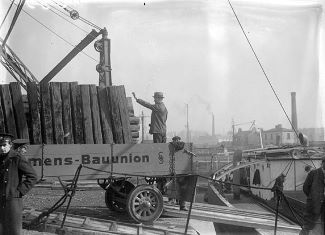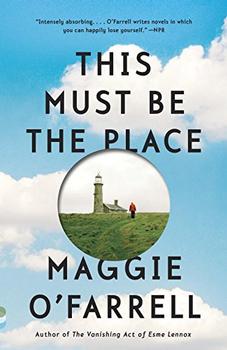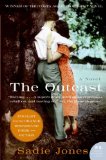Summary | Excerpt | Discuss | Reviews | Beyond the book | Read-Alikes | Genres & Themes | Author Bio

A profound and enchanting new novel from Booker Prize-longlisted author Niall Williams about the loves of our lives and the joys of reminiscing.
You don't see rain stop, but you sense it. You sense something has changed in the frequency you've been living and you hear the quietness you thought was silence get quieter still, and you raise your head so your eyes can make sense of what your ears have already told you, which at first is only: something has changed.
The rain is stopping. Nobody in the small, forgotten village of Faha remembers when it started; rain on the western seaboard was a condition of living. Now--just as Father Coffey proclaims the coming of electricity--it is stopping. Seventeen-year-old Noel Crowe is standing outside his grandparents' house shortly after the rain has stopped when he encounters Christy for the first time. Though he can't explain it, Noel knows right then: something has changed.
This is the story of all that was to follow: Christy's long-lost love and why he had come to Faha, Noel's own experiences falling in and out of love, and the endlessly postponed arrival of electricity--a development that, once complete, would leave behind a world that had not changed for centuries.
Niall Williams' latest novel is an intricately observed portrait of a community, its idiosyncrasies and its traditions, its paradoxes and its inanities, its failures and its triumphs. Luminous and otherworldly, and yet anchored with deep-running roots into the earthy and the everyday, This Is Happiness is about stories as the very stuff of life: the ways they make the texture and matter of our world, and the ways they write and rewrite us.
Particularly given this narrative structure—an old man recalling his youthful exploits—This Is Happiness could easily veer into the realms of sentimentality, but it never does. There's a type of nostalgia, to be sure, especially as Faha—like the rest of rural Ireland—sits on the brink of an entirely new way of life. But there's no wistful longing to bring back those days of yore—just an honest reckoning that, as fondly as those days and people and adventures may be remembered, they now exist only as memories, recalled with genuine appreciation of having not only witnessed but truly lived through such times...continued
Full Review
 (656 words)
(656 words)
(Reviewed by Norah Piehl).
 The personal events of Niall Williams's This Is Happiness are sparked by the impending arrival of electricity to Faha, a tiny hamlet in rural Ireland. The gradual electrification of this largely rural country was a decades-long process that extended over much of the middle part of the 20th century and that has been called the Quiet Revolution because of the extent to which it transformed the lives of ordinary Irish people.
The personal events of Niall Williams's This Is Happiness are sparked by the impending arrival of electricity to Faha, a tiny hamlet in rural Ireland. The gradual electrification of this largely rural country was a decades-long process that extended over much of the middle part of the 20th century and that has been called the Quiet Revolution because of the extent to which it transformed the lives of ordinary Irish people.
Electricity—largely fueled by local and privately held companies—had existed in Dublin since the late 19th century. But beginning in the 1920s, two developments began to pave the way for broader electrical reach. First, the Irish government approved an initiative to install a hydroelectric plant tied to ...

If you liked This Is Happiness, try these:

by Maggie O'Farrell
Published 2017
A dazzling novel from bestselling writer Maggie O'Farrell, winner of the Costa Novel Award—an irresistible love story that crisscrosses continents and time zones as it captures an extraordinary marriage, and an unforgettable family, with wit, humor, and deep affection.

by Sadie Jones
Published 2009
A mesmerizing portrait of 1950s hypocrisy and unexpected love, from a powerful new voice.
We've heard that a million monkeys at a million keyboards could produce the complete works of Shakespeare...
Click Here to find out who said this, as well as discovering other famous literary quotes!